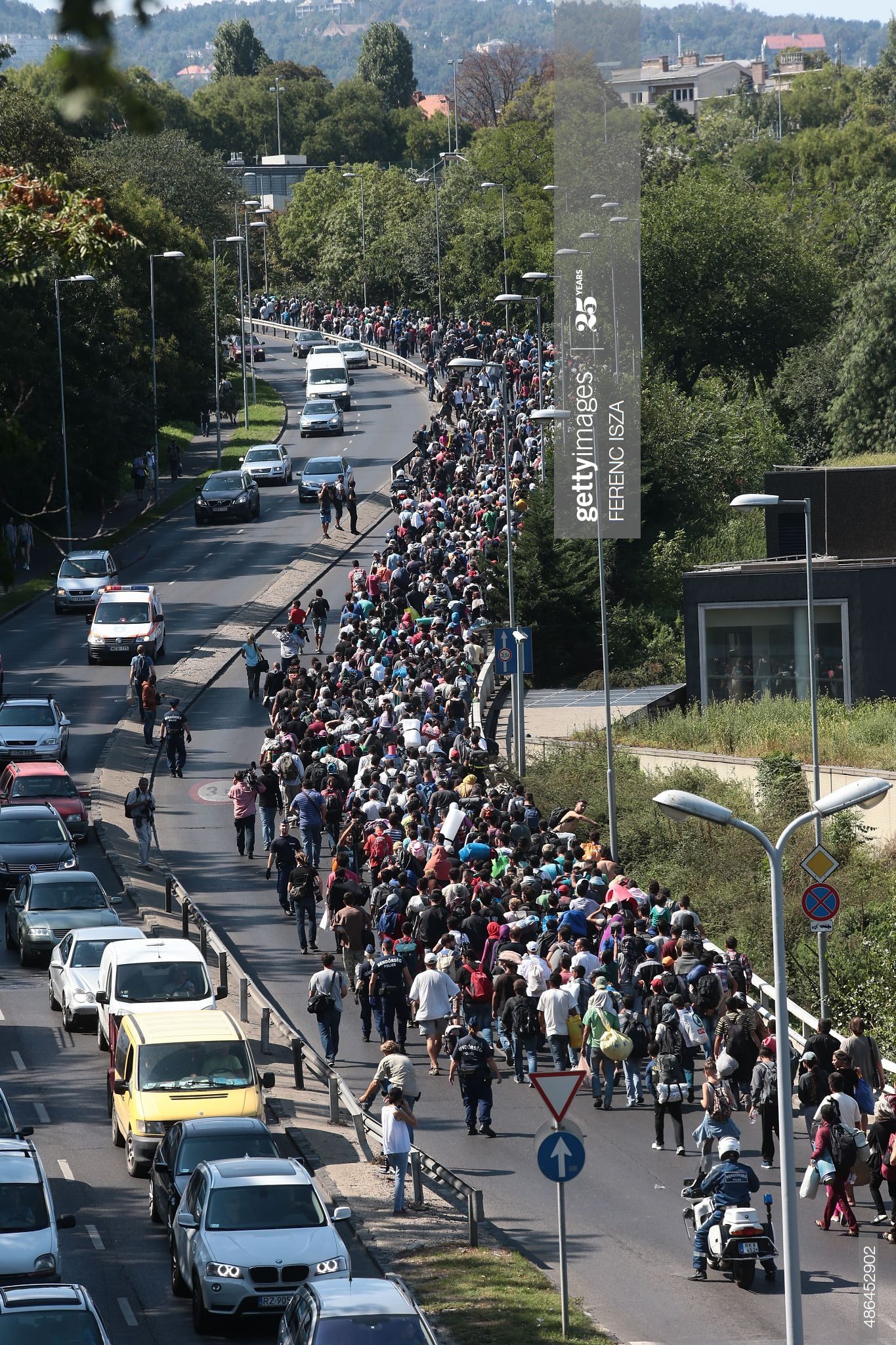While Europe deals with what will soon turn out to be the worst refugee crisis in history, the ghastly sight of the three-year old Syrian refugee’s corpse washed ashore a beach on the Mediterranean Sea while attempting to enter Europe still reminds us of the futility of our efforts. The vast influx of refugees into Europe around 2015 had naturally caused several political and economic tensions especially in countries like Hungary, Greece, Germany and Italy that received the largest number of asylum applications. Consequently, most of these nations were forced to tune their administrative branches to rigid procedures for grant of asylum. However, the traditional opinio juris that an individual only has a right to seek asylum and not be granted one which is a right of the State is witnessing a gradual transformation to a more refugee-sensitive attitude.
As a part of this transformation, on 14th May 2020, the European Court of Justice (“ECJ”) delivered a monumental judgment in the case of FMS v. Országos Idegenrendészeti Főigazgatóság ruling the accommodation housing asylum seekers on the Hungarian-Serbian border to be a form of unlawful detention. Although Article 2(h) of Directive 2013/33/EU defines detention as the confinement of an applicant by a Member State within a particular place, where the applicant is deprived of his or her freedom of movement, the ECJ has widened its scope to also include unconscionable delay in processing asylum applications during the interim stay in the transit zones. This finding against Hungary for having asylum-seekers in the Röszke transit zone will act as a daring precedent in cases where an asylum seeker’s application is in process or has been rejected and s(he) has been left at liberty to return to his country of origin and face persecution.
At the outset, the situation would not look like a detention since the asylum-seekers were free to return to neighbouring Serbia or move into any nation other than Hungary where there was no direct threat to life or health, until their application was accepted by Hungary. However, contrary to what the ECtHR had held in Ilias and Ahmed v. Hungary, the refugees’ fears were not ill-founded. Although Serbia is a party to the Refugee Convention, deficiencies in the functioning of Serbia’s asylum system and the ensuing risk of summary removal to the Republic of North Macedonia or Greece, without a proper examination of asylum claims was a major threat to the refugees and would trigger a chain-refoulement to their country of origin: Iran and Afghanistan. Since returning to their country of origin that they fled to avoid persecution is not an option and section 66 (2) (d) of Hungary’s Asylum Act provides for the forfeiture of examination of asylum claims in Hungary if they left prior to the final decision, the refugees are by necessary implication are confined to the transit zone. This inherently is nothing short of an inhuman, degrading treatment and deprivation of their liberty granted under Article 3 and Article 5 of the ECHR respectively.
The determination of a deprivation of life or liberty cannot only be restricted to direct physical factors and the ECJ has therefore smudged the distinction ECtHR had previously drawn between deprivation and restriction of liberty by giving identical importance to indirect factors like the type, duration, effects and manner of implementation of the measure in question. The question today is not one of the degree or intensity of restriction imposed but the nature of the measure itself coupled with the practical risks associated with them.
While a right to admission can be inferred in international law only in respect of refugees arriving directly from the State of persecution, the pressing need to check asylum shopping does not trump the inalienable rights of respect for human life and freedom of movement under Article 12 of ICCPR and ECHR as well as the peremptory norm of non-refoulement. The source of the quandary happens to be Section 51 (2) (e) r/w Section 51 (4) of the Asylum Act that disqualifies a person from obtaining asylum if there exists a safe third country where he has travelled to or has had the opportunity to apply for asylum in. The catch however is manifold. Firstly, since countries have their respective national lists of ‘safe third countries’, Serbia is regarded as a safe by Hungary despite the findings of the UNHCR as to a real risk of denial of access to an effective asylum procedure in Serbia and its express recommendation that countries refrain from sending asylum-seekers back to Serbia. Secondly, if Serbia were to readmit the individuals during their prolonged one-year waiting period in the transit zone without an application from Hungary, it would be vulnerable to sanctions under the Readmission Agreement concluded between European Union and Serbia.
One cannot achieve true exclusion of such illegal detentions without abolishing laws providing for forfeiture of a refugee’s admission rights as a penalty for retiring from a country’s waiting or transit zone accommodation owing to inordinately long or unfair procedures or rejection of their application. Given the multitude of practical risks and problems that an asylum-seeker is confronted with upon his movement, there is barely any possibility of the accommodation in transit zones constituting anything but a form of unlawful detention. Since most of these risks are in fact designed by the State parties to the Refugee Convention and the EU Directives, there is a pressing need to secure parity amongst the various conditions for grant of asylum and designation of safe third countries as well as the methods and duration for processing asylum applications.
Sadly, this apathy is not limited to Hungary or Europe but other refugee camps too. Be that as it may, this condemnable situation in the Röszke transit zone is an example of how a model designed to protect humans from evil inevitably leaves them choosing between two evils, persecution and endless detention.
The authors are students at National University of Study and Research in Law (NUSRL), Ranchi, India.

